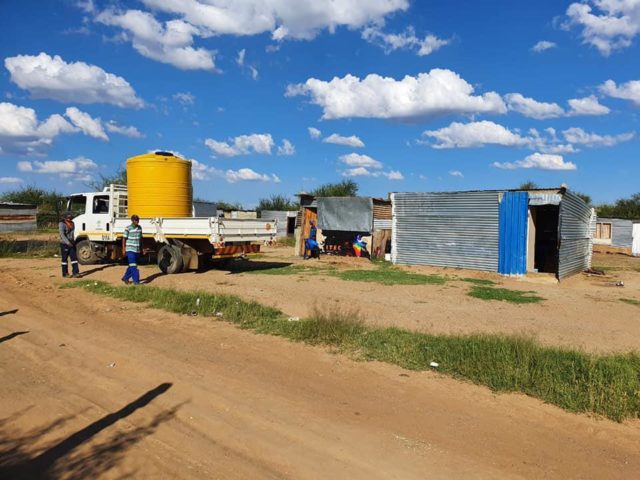More than 100 settlements have already been identified in the Northern Cape as hot spots.
THE DEPARTMENT of Water and Sanitation (DWS) has so far delivered more than 100 water tanks with a capacity of 5-10 kilolitres to vulnerable communities in the Northern Cape.
A further 391 water tanks are expected to be delivered this week.
The need for 659 water tanks was initially identified but the demand is still growing.
A total of 76 tanker trucks are needed in the Northern Cape and so far two tanker trucks were delivered. A further 50 tanker trucks are in transit and are expected to arrive this week in the Province for distribution to various municipalities.
The department has also allocated 500 litres of liquid hand-washing soap to the Province to ensure that residents of the Northern Cape, especially the vulnerable, have both access to water and soap to wash their hands frequently and to sanitise them regularly as a means to protect themselves from the coronavirus.
The Minister of Human Settlements, Water and Sanitation, Lindiwe Sisulu, directed the department to increase provision of water and sanitation in high-density public areas and informal settlements to combat the Covid-19 pandemic.
According to the Northern Cape DWS acting provincial head, Kobus Streuders, more than 100 settlements have already been identified in the Northern Cape as hot spots. These settlements are within the following municipalities: Phokwane, Dikgatlong, Sol Plaatje, Magareng, Thembelihle, Kareeberg, Siyancuma, Umsobomvu, Emthanjeni, Siyathemba, Renosterberg, Gamagara, Kai!Garib, Joe Morolong, Ga Segonyana, Tsantsabane, Dawid Kruiper, !Kheis and Kamiesberg.
Streuders further explained that various factors guided them to determine which areas were hot spots. These factors included “areas with no or minimal water supply; densely populated areas with a high probability of spreading the Covid-19; and areas where citizens would be acquiring their essential services”.








